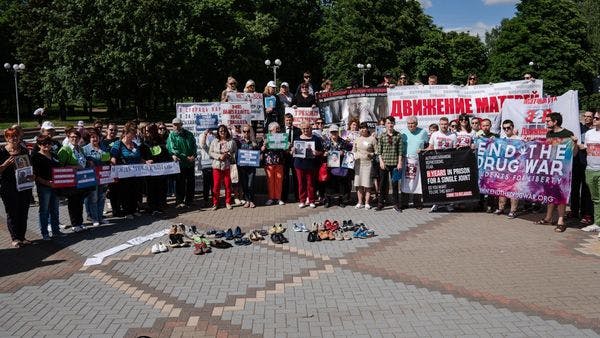Legalize Belarus
Belarus amends its drug legislation: What it really means for people caught with drugs
On 13 June 2019, the Belarusian House of Representatives passed amendments to the notorious Article 328 of the country's Criminal Code. In the new version of the legislation, the lower limit of punishment under the 2nd and 3rd parts of the article that account for drug distribution is reduced by 2 years.
Since the president toughened the country’s drug laws in 2014, those have been criticized by civil society activists and international organisations alike. The Ministry of Internal Affairs was the main opponent to amending the country’s legislation with a view to punish drug possession and consumption. But three days after the resignation of Ihar Šunievič who has served as Minister of Internal Affairs since 2012, the new legislation was adopted.
The “Mothers 328” movement, a group of mothers of people convicted of drug offences, went on a hunger strike on 11 June, and are unlikely to stop their protest. For the past 15 days, they have only been drinking water to demand the release of their children, as well as improvements to Article 328.
“More than 10 thousand people are imprisoned under a single article of the Criminal Code. Unless the government starts responding to complaints and revise criminal cases, the adopted amendments are just a cosmetic improvement aiming to bring more people to the II European Games, that are taking place in Minsk”, — said the leader of the “Mothers 328” movement, Łarysa Žyhar.
In a joint statement, released by the mother’s group and the Legalize Belarus civil movement on 30th May, activists identified a number of key points for meaningful drug policy reform:
- The amendments don’t affect the first part of the article that establishes criminal liability for possessing drugs for personal use. People are still subjected to prosecution for possession of even a small amount of cannabis or other controlled substances.
- The amendments did not introduce a clear demarcation of responsibility based on the quantity and type of a drug. In other words, a wholesale supplier and a small dealer will receive the same punishment under the current legislation. The vast majority of people convicted under parts 2-4 of the article are either people who used drugs in a group or low-level deliverymen.
- The 4th part of the article still provides punishment of up to 20 years in prison. Numerous cases were reported of people convicted of “activities within an organized criminal group” simply because they had bought drugs from the same dealer.
- The amendments do not change the situation of minors – in Belarus, criminal liability under Article 328 starts from the age of 14. International activists demanded the release of all convicted for drug-related crimes who were under 18 when arrested.
